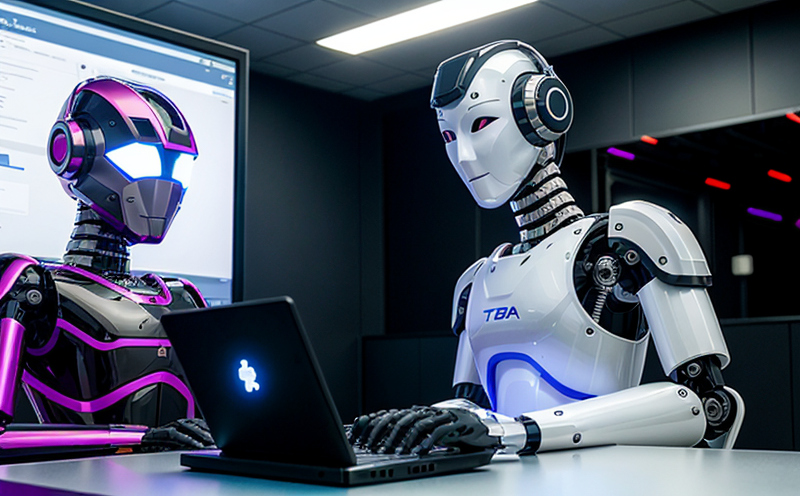ISO/IEC 29134 Data Protection Impact Assessment in Robotics
The ISO/IEC 29134 standard provides a framework for conducting data protection impact assessments (DPIAs) to ensure compliance with the General Data Protection Regulation (GDPR) and other international privacy regulations. In the context of robotics, particularly those employing artificial intelligence systems, DPIAs are critical to identifying risks associated with the collection, processing, storage, and transmission of personal data.
The assessment process under ISO/IEC 29134 involves several key steps: identifying the processing activities; assessing the nature, scope, context, and purposes of those activities; analyzing the risks related to data protection; determining appropriate measures for addressing identified risks; and recording the results. This structured approach ensures that robotics systems are designed and implemented in a manner that respects privacy laws and regulations.
For quality managers and compliance officers, this service offers an essential tool for ensuring that their robotics and AI projects comply with GDPR and other relevant international standards. The process also helps R&D engineers identify potential vulnerabilities in their systems early on, allowing for necessary adjustments before deployment. For procurement professionals, it ensures that the components and technologies they select are compliant with data protection requirements.
The assessment can be particularly useful when dealing with sensitive data such as biometric information or personal health records. By conducting a DPIA, organizations can determine whether their robotics systems meet the necessary standards for handling this type of data securely and ethically. This proactive approach not only protects against potential legal issues but also enhances trust between organizations and their clients.
One key aspect of ISO/IEC 29134 is its emphasis on transparency. By clearly documenting all aspects of data processing activities, organizations demonstrate their commitment to openness and accountability. This can be especially important in industries where public trust is paramount, such as healthcare or finance.
| Step | Description |
|---|---|
| Identify Processing Activities | List all activities involving personal data that the robotics system will perform. |
| Analyze Risks | Evaluate potential risks to privacy and security associated with these activities. |
| Determine Mitigation Measures | Identify appropriate measures to mitigate identified risks, ensuring compliance with regulatory requirements. |
| Document Results | Create a comprehensive record of the DPIA process and outcomes for future reference. |
The DPIA should be conducted at regular intervals or whenever there is a significant change in the processing activities. This ensures ongoing compliance with data protection laws and helps maintain public trust.
For those working in robotics, especially AI systems, understanding and implementing ISO/IEC 29134 can significantly enhance your organization's reputation for responsible technology use. It provides a clear roadmap for navigating complex legal landscapes while fostering innovation within ethical boundaries.
Industry Applications
- Healthcare Robotics
- Automated Manufacturing
- Smart Cities
- Autonomous Vehicles
In healthcare robotics, for instance, ISO/IEC 29134 helps ensure that patient data is handled securely and ethically. This includes not only the physical interactions but also the digital transactions between robots and patients.
Automated manufacturing systems benefit from DPIAs by identifying potential privacy risks early in the design phase. For smart cities, where vast amounts of personal information are collected and processed, this standard ensures that all parties involved understand their obligations regarding data protection.
Autonomous vehicles represent another area where ISO/IEC 29134 plays a crucial role. These systems must handle complex datasets that include location tracking, vehicle operation logs, and passenger preferences. Conducting a thorough DPIA helps ensure these systems comply with applicable regulations while maintaining user trust.
Customer Impact and Satisfaction
- Increased Trust in Robotic Systems
- Improved Compliance with Legal Requirements
- Enhanced Reputation for Responsible Technology Use
- Potential Reduction in Legal Risks
By ensuring compliance with ISO/IEC 29134, customers can increase trust in robotic systems across various sectors. This is particularly important when dealing with sensitive data such as biometric information or personal health records.
Improved compliance not only helps avoid penalties associated with non-compliance but also demonstrates a commitment to responsible technology use. This enhances the reputation of organizations involved in robotics and AI development, making them more attractive partners for collaboration and investment.
Potential reduction in legal risks is another significant benefit. By identifying and addressing privacy concerns early on through DPIAs, organizations can significantly lower their exposure to litigation or regulatory enforcement actions. This peace of mind allows businesses to focus on innovation rather than worrying about potential compliance issues.
Competitive Advantage and Market Impact
Implementing ISO/IEC 29134 can give companies a distinct competitive edge by positioning them as leaders in responsible technology use. In an increasingly interconnected world, where data privacy is becoming a top concern for consumers, organizations that demonstrate strong adherence to international standards are likely to be favored.
This standard also supports sustainable growth within the robotics industry. By consistently meeting high ethical and legal standards, companies can build long-term relationships with customers and stakeholders, fostering loyalty and repeat business. This stability contributes to overall market resilience, which is crucial in volatile economic environments.
Moreover, compliance with ISO/IEC 29134 aligns organizations with global trends towards more transparent and accountable technology practices. As privacy regulations continue to evolve globally, staying ahead of these changes can help companies maintain their relevance and adaptability in the face of regulatory pressures.





